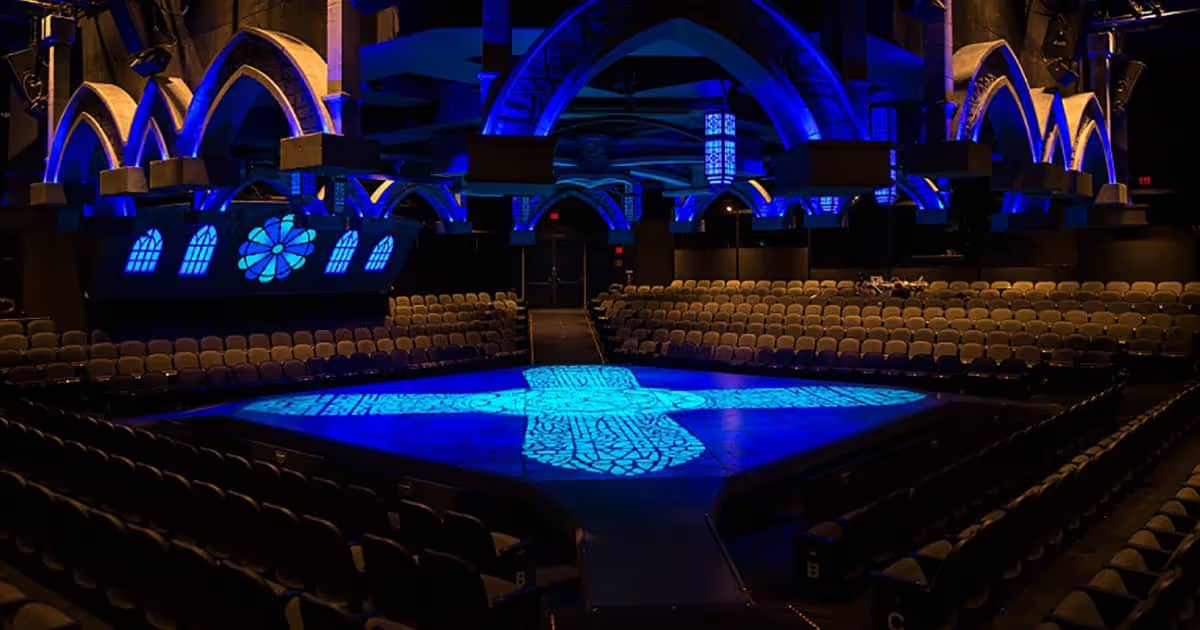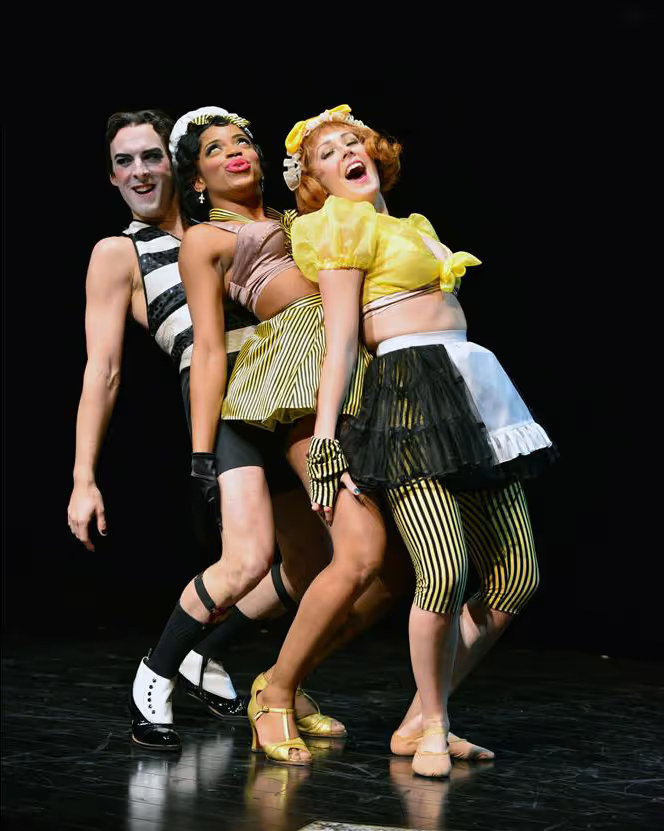'Cabaret' Review - A new rendition, but ''Don't Tell Mama''
The Marriott Theatre opened its 2014 season with Cabaret on Wednesday night - one of the coldest nights so far this winter - to a very warm, actually hot - reception with a long, standing ovation, and an audience not in a hurry to leave.
The legendary John Kander and Fred Ebb musical, which opened on Broadway in 1966, followed by Bob Fosse's film adaptation in 1972, has been a treasure ever since. The show is based on Christopher Isherwood’s novel “The Berlin Stories” and John Van Druten’s play “I Am a Camera,” with superb book by Joe Masteroff. The story is about English cabaret performer Sally Bowles and American writer Clifford Bradshaw and the decadence of 1929 Berlin, the period between the two World Wars.
Inside the Kit Kat Klub, the cabaret where “everything is beautiful,” Stephen Schellhardt as the Emcee encourages you to indulge your fantasies and try all that’s forbidden with “Willkommen”, one of the score's signature songs. Bi-sexual Clifford (Patrick Sarb, as a subtle, effective observer) is easily seduced by Sally and the hedonistic, erotic atmosphere inside this pleasure den, while outside the specter of rising Nazi power is ignored.
The multi-award winning director, David H. Bell, adroitly balances the two major themes in the show: sex and looming genocide, but doesn’t let the sexual promiscuity overshadow the threat of another World War. There is an “in-between” feeling-this Berlin is titillating and dangerous, but not wholly evil.
Terrific dancer Megan Sikora, as needy, narcissistic lead Sally, in her desperate attempt to find someone or something to hold on to, reaches her high point with the ballad “Maybe This Time”, but didn't succeed as well with the show’s title show-stopping song. Her intense search, however, leads to a sense of panic, well evident in what she and Bell develop.
The choreography by Matt Raftery is as strong and tight as can be, performed by a small but stylistically perfect group of dancers, dressed in Nancy Missimi’s tantalizing costumes, replete with the “boys” in lederhosen, some bare-chested, others in undershirts. The slow beginnings that develop into ever increasing pounding, insistent, faster diagonal pivots, military salutes and goose-stepping shifts are ominous and chilling.
Fraulein Schneider (Annabel Armour) and Herr Schultz (Craig Spidle), the secondary love interests, add both humor, pathos, and awareness to the troubles awaiting them. Armour and Spidle, both legitimate theatre actors, have a real chemistry between them, and Armour is powerfully caught in the dilemma of both the unknown and fearing the worst to come in "What Would You Do?".
Thomas M. Ryan’s design includes a catwalk-like upper level, a balcony of sorts, set with mannequins seated or standing at cocktail tables. It’s a clever way to create the atmosphere of the Klub, the nightclub where people go to see and be seen, but not get in the way of the action below...
Jameson Cooper (Ernst Ludwig) is Clifford’s charming friend and English pupil turned Nazi menace is charming and strong. And Christine Sherrill, as the prostitute Fraulein Kost was a standout as the perfect Nazi with “Tomorrow Belongs to Me”.
As hopeful as this show is supposed end, because Clifford sees what is happening and gets out in time, while oblivious Sally never wants to let the real world in, we are left knowing, particularly with our post-war hindsight, that a frenzied, chaotic, terrifying world is about to descend. But for the rest, who will survive and who will not?











